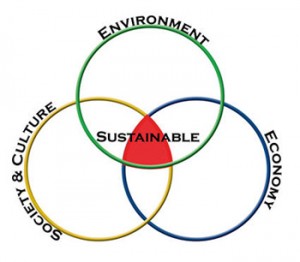The nature and money – both we cannot live without. Which do you think weighs heavier than the other? Currently, the world generally are opting for the latter when it comes to their policies. Not many countries are willing to sacrifice their economic output to exchange for a better and stabler environment for our next generations.
However, people may start changing their ground after reading the Fifth Assessment Report of Intergovernmental Panel on Climate Change (IPCC). It states that “There are six estimates for expected impacts of warming at 3°C or above, with a median estimated impact of a 3.6 percent reduction in global GDP for 3–4.9°C of warming.”
At present, people are being relatively short-sighted – just paying attention to short-term benefits and exploiting the right to use of our future generations, which is not sustainable at all. They neglect that in fact achieve sustainability is actually a mean to sustain their business and economy as well. The study well illustrates the situation. If the world keep let warming worsens, it is revealed that more unpredictable diseases and catastrophe like coastal flooding will be approaching. As a result, the overall long term productivity will generally decline at a certain point.
It is hoped that people should think further, rather than just themselves. Reducing carbon emission does not just benefit the environment, but also is proved to achieve economic sustainability.
Reference: http://www.economist.com/blogs/freeexchange/2015/09/climate-change
